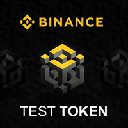-
 Bitcoin
Bitcoin $85,732.5629
-3.09% -
 Ethereum
Ethereum $2,338.6819
-5.62% -
 Tether USDt
Tether USDt $0.9990
0.02% -
 XRP
XRP $2.2102
-3.14% -
 BNB
BNB $615.2001
-1.19% -
 Solana
Solana $139.4202
-1.74% -
 USDC
USDC $0.9999
0.01% -
 Dogecoin
Dogecoin $0.2072
-1.23% -
 Cardano
Cardano $0.6623
-2.93% -
 TRON
TRON $0.2279
-0.21% -
 Chainlink
Chainlink $15.3156
0.38% -
 Litecoin
Litecoin $125.5555
6.52% -
 Avalanche
Avalanche $22.4986
2.38% -
 Sui
Sui $2.9296
-2.25% -
 Stellar
Stellar $0.2901
-0.65% -
 Toncoin
Toncoin $3.4705
-2.55% -
 Shiba Inu
Shiba Inu $0.0...01451
2.08% -
 UNUS SED LEO
UNUS SED LEO $9.0925
0.55% -
 Hedera
Hedera $0.1994
2.02% -
 Polkadot
Polkadot $4.8774
3.39% -
 MANTRA
MANTRA $7.3463
-3.87% -
 Hyperliquid
Hyperliquid $20.5703
-0.26% -
 Bitcoin Cash
Bitcoin Cash $297.2889
0.79% -
 Ethena USDe
Ethena USDe $0.9991
0.02% -
 Dai
Dai $0.9999
0.03% -
 Bitget Token
Bitget Token $4.0638
-6.44% -
 Uniswap
Uniswap $8.0785
-2.79% -
 Monero
Monero $215.3952
-1.97% -
 NEAR Protocol
NEAR Protocol $3.0574
1.20% -
 Aptos
Aptos $6.1143
8.83%
What factors affect the transaction processing speed of L1 blockchain?
The transaction processing speed of L1 blockchains is influenced by numerous factors, including hardware capabilities, network latency, consensus mechanisms, block size, and transaction volume.
Feb 27, 2025 at 11:12 am
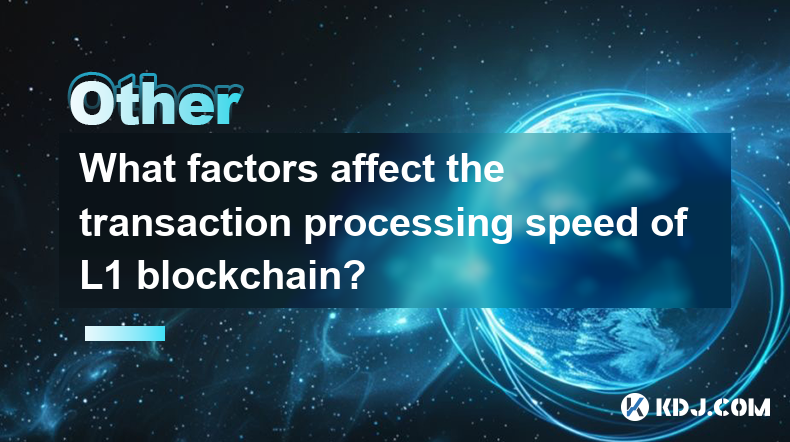
Key Points
- Factors affecting L1 blockchain transaction processing speed
- Factors affecting Ethereum transaction processing speed
- Factors affecting Bitcoin transaction processing speed
- Factors affecting Cardano transaction processing speed
- Factors affecting Solana transaction processing speed
- Factors affecting Polkadot transaction processing speed
- Factors affecting Avalanche transaction processing speed
- FAQs on L1 blockchain transaction processing speed
Factors Affecting L1 Blockchain Transaction Processing Speed
The transaction processing speed of a Layer 1 (L1) blockchain refers to the rate at which it can process transactions and add them to its ledger. Several factors influence the transaction processing speed of an L1 blockchain:
Hardware: The processing power of the computers running the blockchain nodes plays a crucial role in determining the speed of transaction processing. More powerful hardware can handle more transactions per second.
Network latency: The time it takes for data to travel across the network can also affect transaction processing speed. Higher network latency can lead to slower transaction speeds.
Consensus mechanism: The consensus mechanism used by the blockchain determines how transactions are validated and added to the ledger. Different consensus mechanisms have varying levels of efficiency, which can impact transaction processing speed.
Block size: The size of the blocks on the blockchain can also affect transaction processing speed. Larger block sizes can accommodate more transactions, but they can also take longer to validate and add to the ledger.
Number of transactions: The number of transactions waiting to be processed can also impact transaction processing speed. When there is a high volume of transactions, it can take longer for a transaction to be processed.
Factors Affecting Ethereum Transaction Processing Speed
Ethereum, one of the most popular L1 blockchains, has several factors that can affect its transaction processing speed:
Gas price: The gas price is the amount of Ether (ETH) users are willing to pay to have their transactions processed faster. Higher gas prices can lead to faster transaction processing.
Network congestion: When the Ethereum network is congested, it can take longer for transactions to be processed. Congestion can occur when there is a high volume of transactions or during periods of high demand.
Factors Affecting Bitcoin Transaction Processing Speed
Bitcoin, the original L1 blockchain, has several factors that can affect its transaction processing speed:
Block time: The block time on the Bitcoin blockchain is approximately 10 minutes. This means that it takes an average of 10 minutes for a transaction to be added to the ledger.
Network congestion: When the Bitcoin network is congested, it can take longer for transactions to be processed. Congestion can occur when there is a high volume of transactions or during periods of high demand.
Factors Affecting Cardano Transaction Processing Speed
Cardano, a proof-of-stake L1 blockchain, has several factors that can affect its transaction processing speed:
Ouroboros consensus mechanism: Cardano uses the Ouroboros consensus mechanism, which is designed to be more efficient than the proof-of-work consensus mechanism used by Bitcoin. Ouroboros can process more transactions per second than proof-of-work.
Hydra scaling solution: Hydra is a scaling solution that is being developed for Cardano. Hydra is designed to increase the transaction processing capacity of the Cardano blockchain by allowing multiple transactions to be processed in parallel.
Factors Affecting Solana Transaction Processing Speed
Solana, a high-performance L1 blockchain
Disclaimer:info@kdj.com
The information provided is not trading advice. kdj.com does not assume any responsibility for any investments made based on the information provided in this article. Cryptocurrencies are highly volatile and it is highly recommended that you invest with caution after thorough research!
If you believe that the content used on this website infringes your copyright, please contact us immediately (info@kdj.com) and we will delete it promptly.
- Avalanche Foundation and Rain Launch the Avalanche Card Targeting Southeast Asia, Africa, and Latin America
- 2025-02-27 13:05:31
- BTC Bull Token (BTCBULL) Closes Its Presale on $3 Million Raising the Bar for Bitcoin-Themed Meme Coins
- 2025-02-27 13:05:31
- Bitcoin price drops to lows not seen since Nov. 11, 2024
- 2025-02-27 12:55:31
- Bitcoin (BTC) Price Drops Below $90K, Experiencing Its Biggest Price Drop
- 2025-02-27 12:55:31
- Bitcoin and Ethereum Are Losing Momentum—Where's the Next Big Move?
- 2025-02-27 12:50:31
- Crypto ATM Fraud Prevention Act aims to crack down on Bitcoin ATM scams targeting seniors
- 2025-02-27 12:50:31
Related knowledge
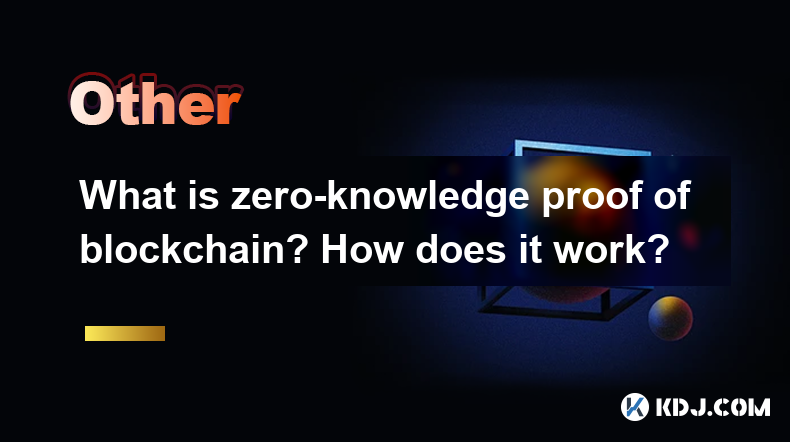
What is zero-knowledge proof of blockchain? How does it work?
Feb 27,2025 at 03:55am
What is Zero-Knowledge Proof of Blockchain? How Does it Work?Key Points:Definition: Zero-knowledge proof (ZKP) is a cryptographic method allowing one party (the prover) to prove to another party (the verifier) that a statement is true without revealing any information beyond the truth of the statement itself. In the blockchain context, this translates t...
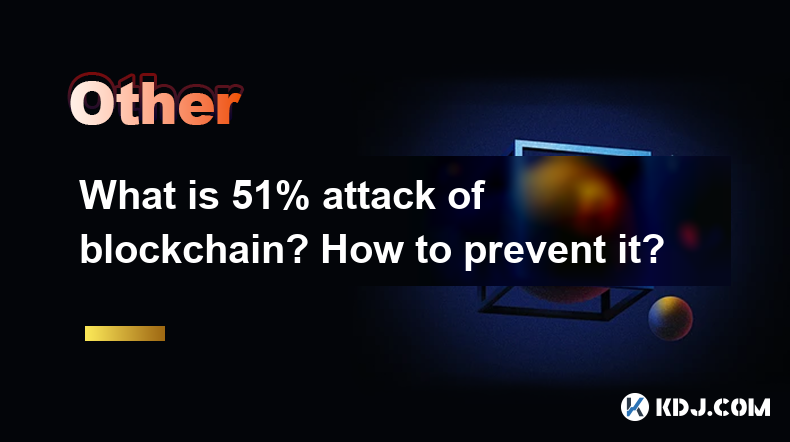
What is 51% attack of blockchain? How to prevent it?
Feb 27,2025 at 03:19am
What is a 51% Attack of Blockchain? How to Prevent It?Key Points:Understanding the 51% Attack: A 51% attack, also known as a majority attack, occurs when a single entity or a group of colluding entities gains control of over 50% of the network's hashing power (in Proof-of-Work blockchains) or stake (in Proof-of-Stake blockchains). This allows them to ma...
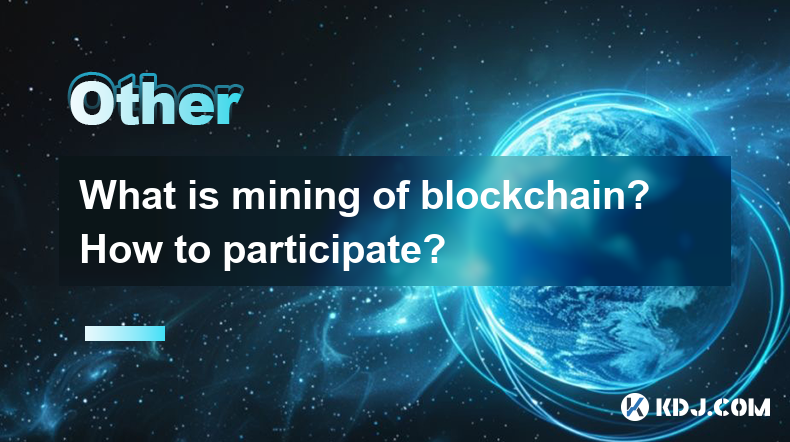
What is mining of blockchain? How to participate?
Feb 27,2025 at 12:36am
What is Mining of Blockchain? How to Participate?Key Points:Understanding Blockchain Mining: A deep dive into the process, its purpose within the blockchain ecosystem, and the different consensus mechanisms employed.Types of Mining: Exploring Proof-of-Work (PoW), Proof-of-Stake (PoS), and other less common consensus mechanisms, highlighting their differ...
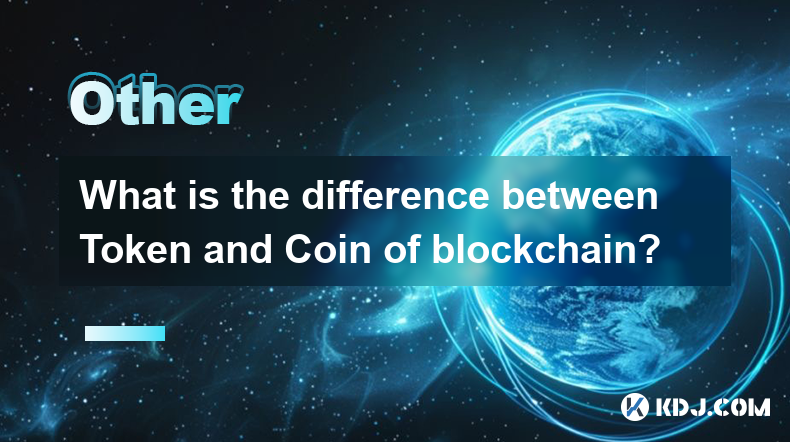
What is the difference between Token and Coin of blockchain?
Feb 27,2025 at 03:24am
What is the Difference Between Token and Coin of Blockchain?Key Points:Coins: Represent native cryptocurrencies built on their own blockchain networks. They serve as the primary medium of exchange within their respective ecosystems and are often used for transaction fees and staking. Examples include Bitcoin (BTC) and Litecoin (LTC).Tokens: Represent as...
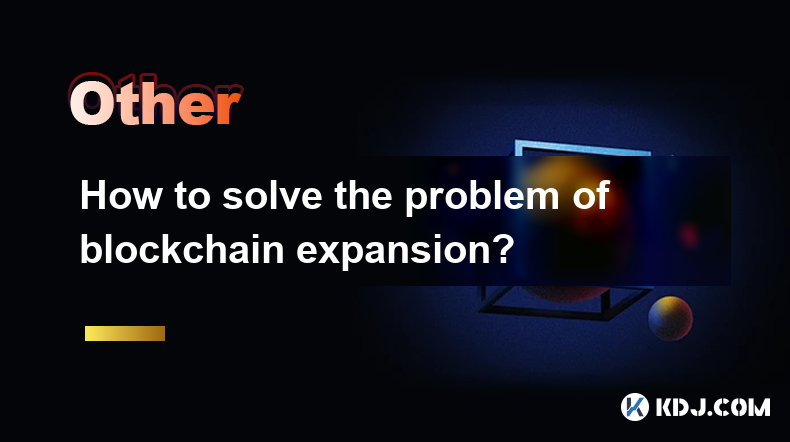
How to solve the problem of blockchain expansion?
Feb 27,2025 at 03:37am
How to Solve the Problem of Blockchain Scalability?Key Points:Layer-2 Scaling Solutions: Exploring techniques like state channels, rollups (optimistic and zk-SNARKs), and sidechains to process transactions off-chain, significantly increasing throughput.Sharding: Dividing the blockchain into smaller, more manageable shards to process transactions concurr...
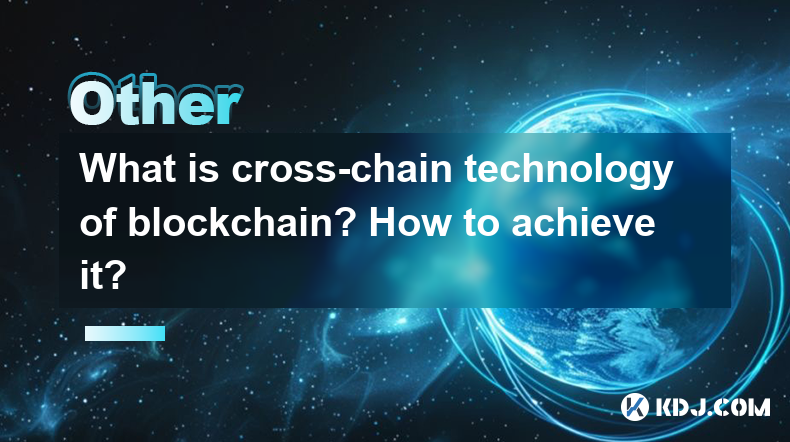
What is cross-chain technology of blockchain? How to achieve it?
Feb 27,2025 at 06:49am
What is Cross-Chain Technology of Blockchain? How to Achieve It?Key Points:Cross-chain technology enables interoperability between different blockchain networks, allowing for the seamless transfer of assets and data across disparate systems.Achieving cross-chain functionality involves overcoming significant technical challenges related to security, scal...

What is zero-knowledge proof of blockchain? How does it work?
Feb 27,2025 at 03:55am
What is Zero-Knowledge Proof of Blockchain? How Does it Work?Key Points:Definition: Zero-knowledge proof (ZKP) is a cryptographic method allowing one party (the prover) to prove to another party (the verifier) that a statement is true without revealing any information beyond the truth of the statement itself. In the blockchain context, this translates t...

What is 51% attack of blockchain? How to prevent it?
Feb 27,2025 at 03:19am
What is a 51% Attack of Blockchain? How to Prevent It?Key Points:Understanding the 51% Attack: A 51% attack, also known as a majority attack, occurs when a single entity or a group of colluding entities gains control of over 50% of the network's hashing power (in Proof-of-Work blockchains) or stake (in Proof-of-Stake blockchains). This allows them to ma...

What is mining of blockchain? How to participate?
Feb 27,2025 at 12:36am
What is Mining of Blockchain? How to Participate?Key Points:Understanding Blockchain Mining: A deep dive into the process, its purpose within the blockchain ecosystem, and the different consensus mechanisms employed.Types of Mining: Exploring Proof-of-Work (PoW), Proof-of-Stake (PoS), and other less common consensus mechanisms, highlighting their differ...

What is the difference between Token and Coin of blockchain?
Feb 27,2025 at 03:24am
What is the Difference Between Token and Coin of Blockchain?Key Points:Coins: Represent native cryptocurrencies built on their own blockchain networks. They serve as the primary medium of exchange within their respective ecosystems and are often used for transaction fees and staking. Examples include Bitcoin (BTC) and Litecoin (LTC).Tokens: Represent as...

How to solve the problem of blockchain expansion?
Feb 27,2025 at 03:37am
How to Solve the Problem of Blockchain Scalability?Key Points:Layer-2 Scaling Solutions: Exploring techniques like state channels, rollups (optimistic and zk-SNARKs), and sidechains to process transactions off-chain, significantly increasing throughput.Sharding: Dividing the blockchain into smaller, more manageable shards to process transactions concurr...

What is cross-chain technology of blockchain? How to achieve it?
Feb 27,2025 at 06:49am
What is Cross-Chain Technology of Blockchain? How to Achieve It?Key Points:Cross-chain technology enables interoperability between different blockchain networks, allowing for the seamless transfer of assets and data across disparate systems.Achieving cross-chain functionality involves overcoming significant technical challenges related to security, scal...
See all articles














































































